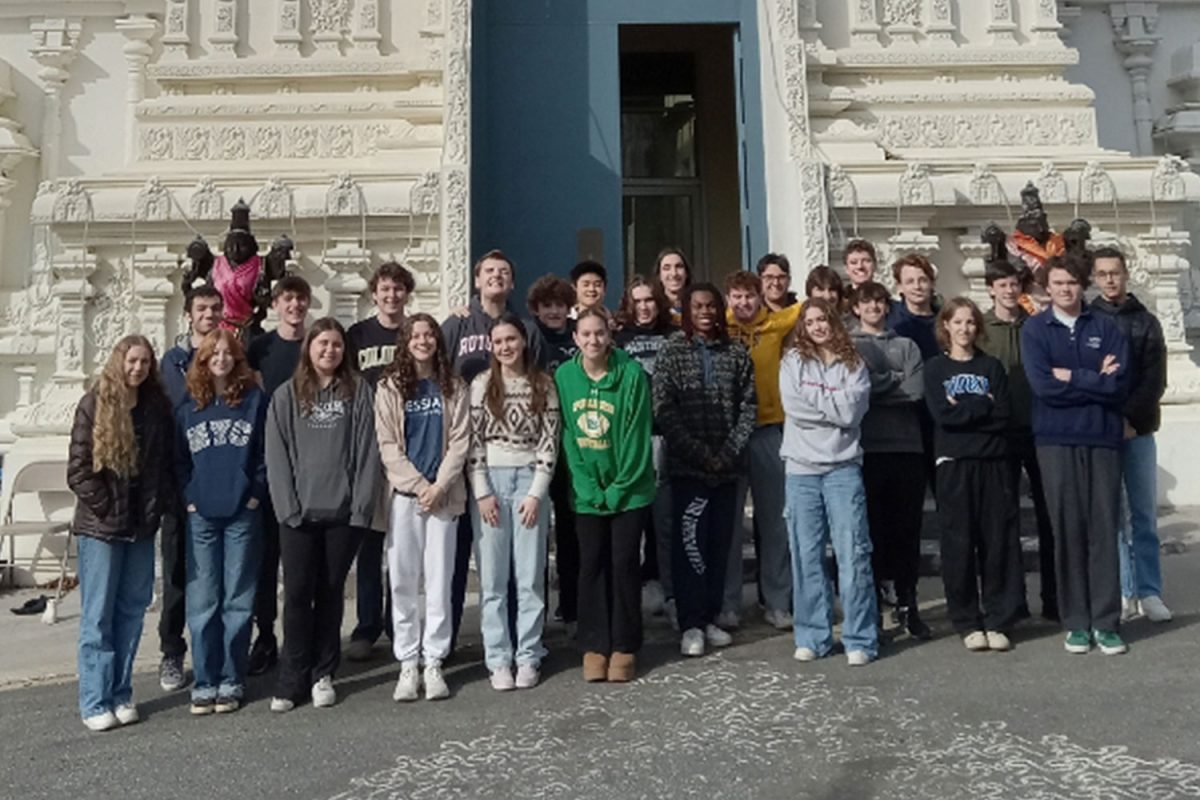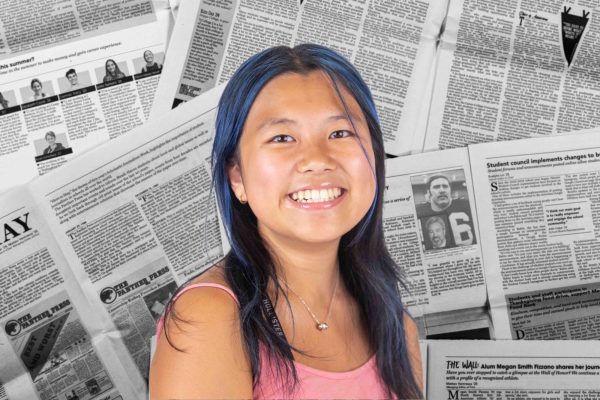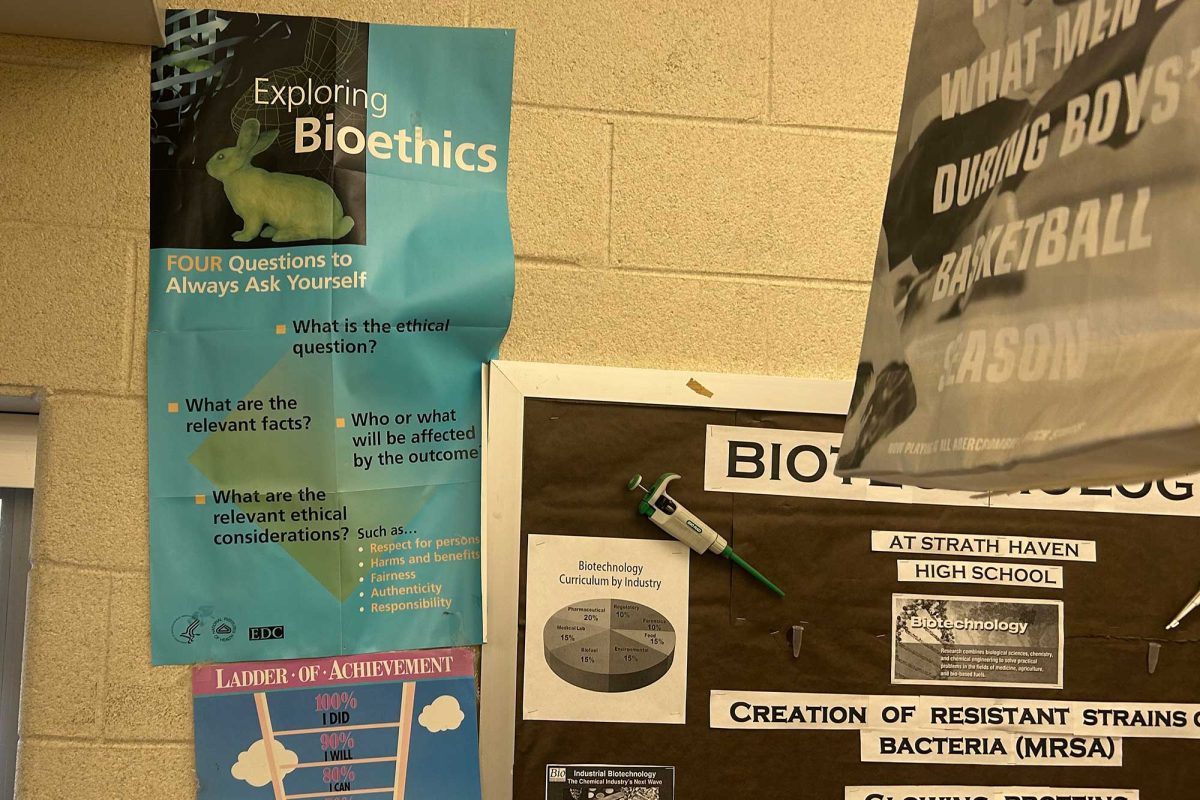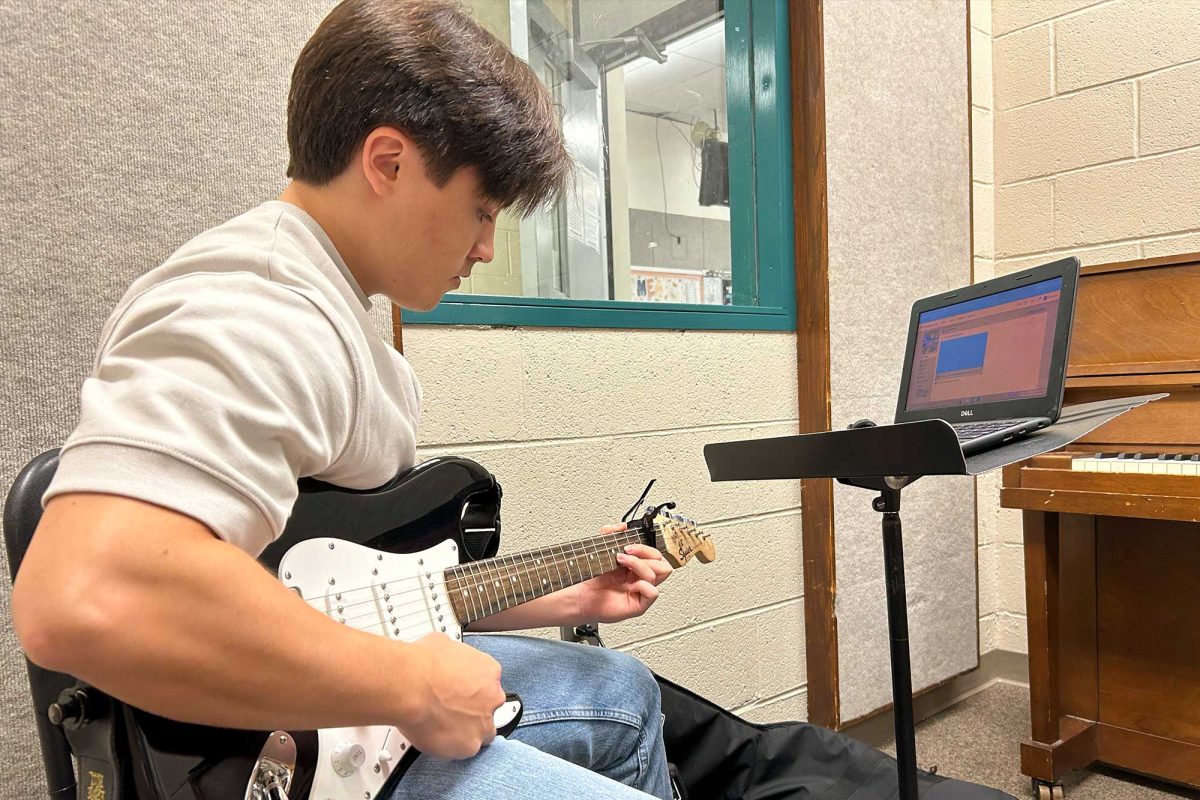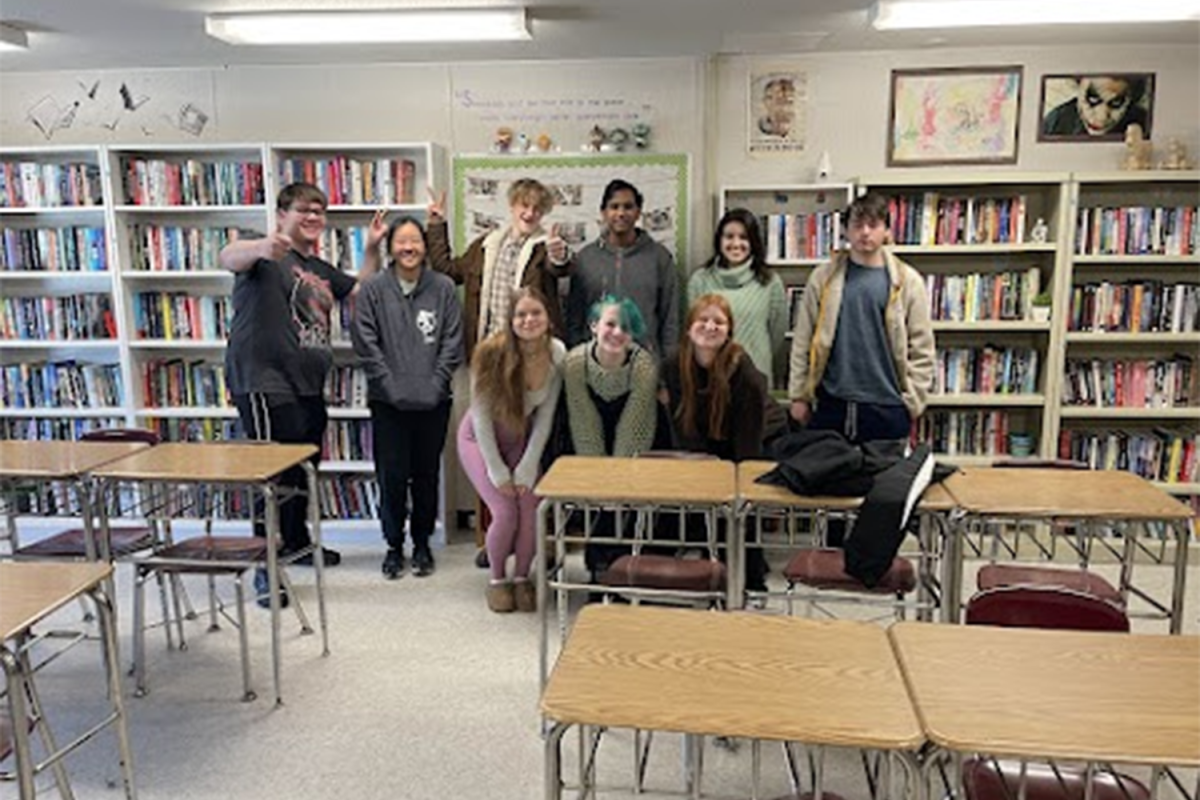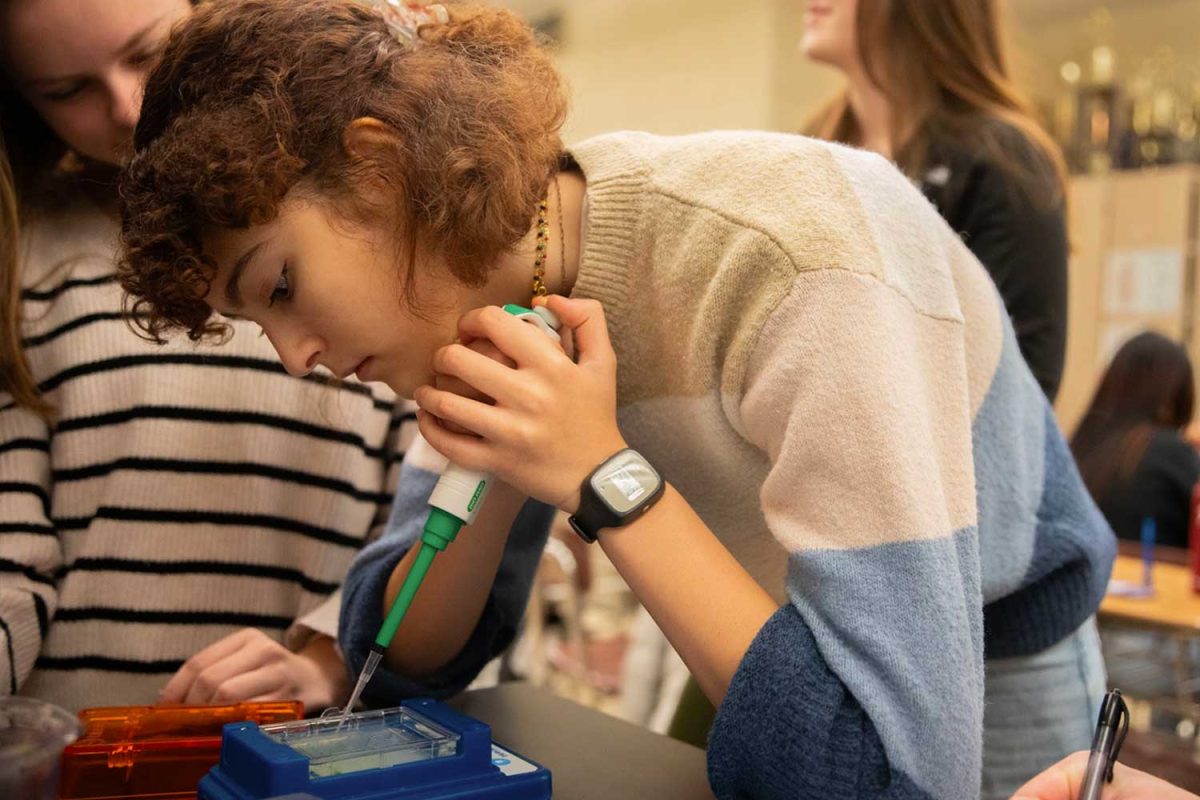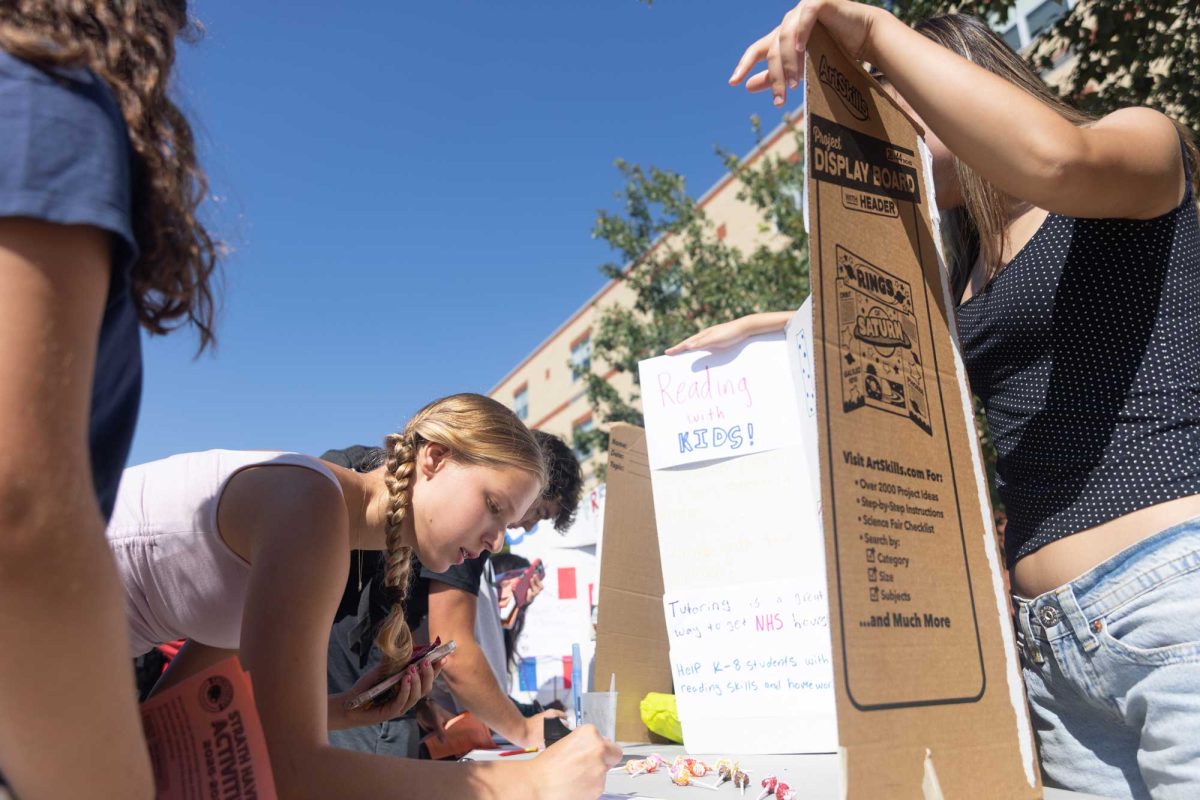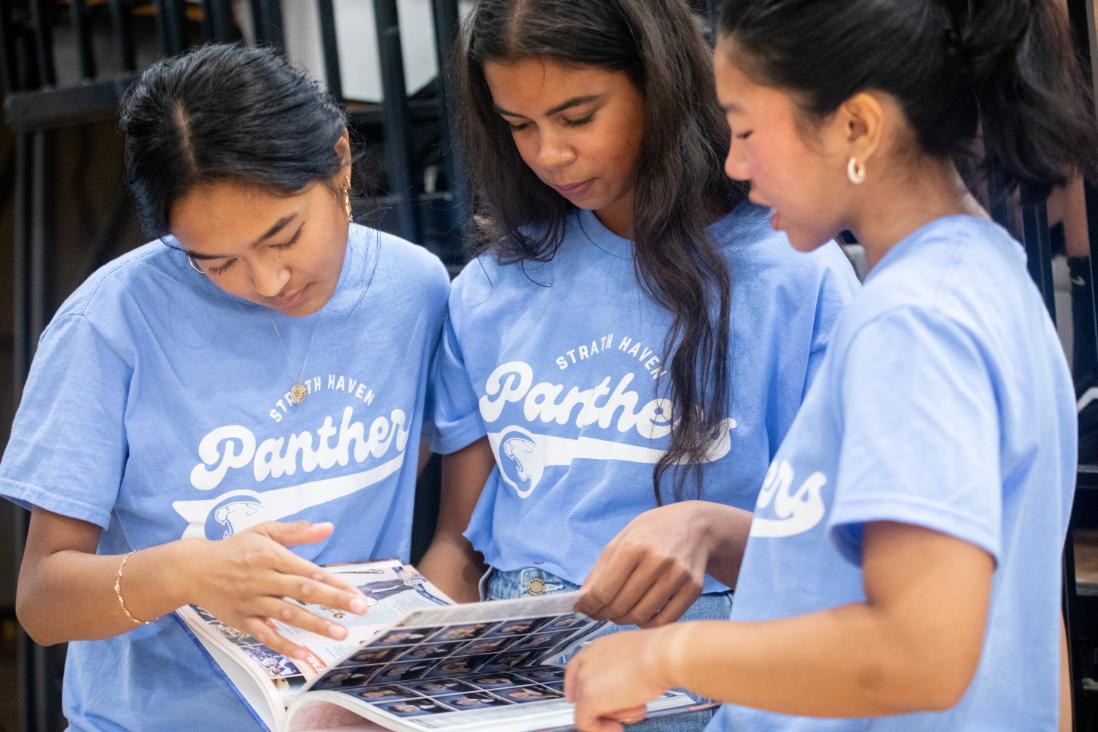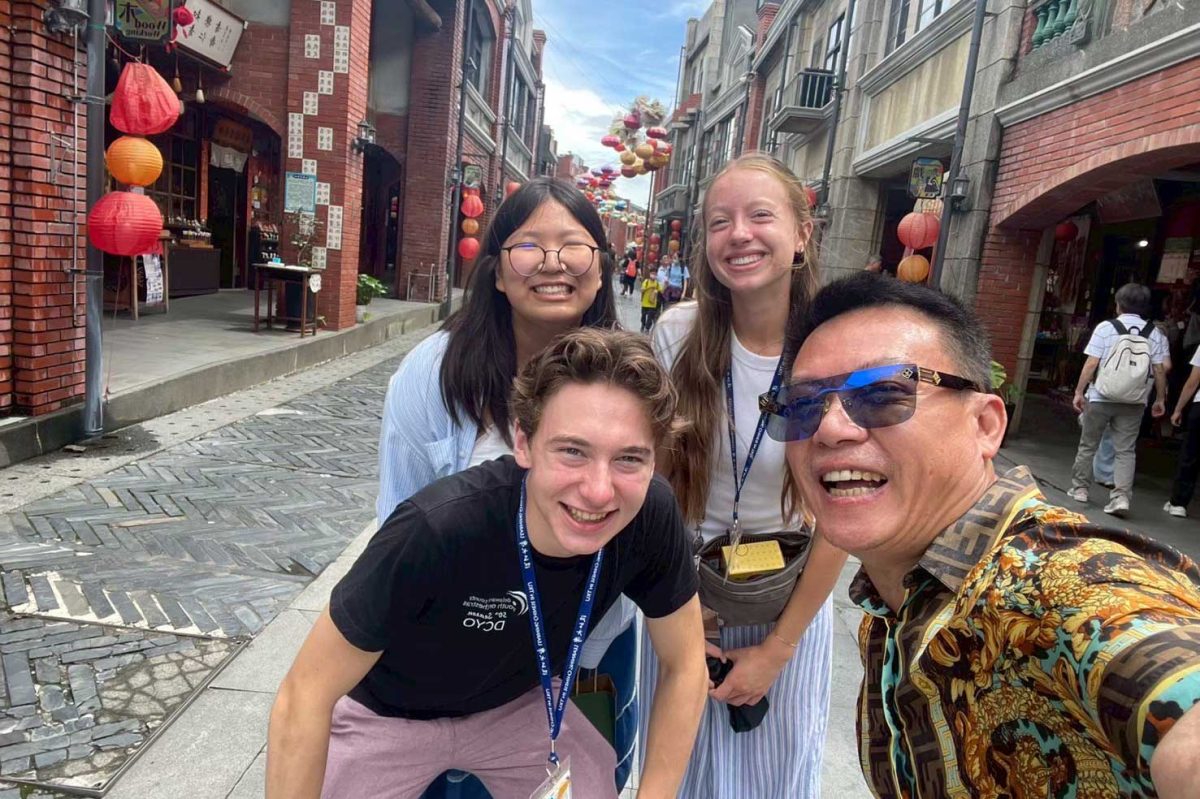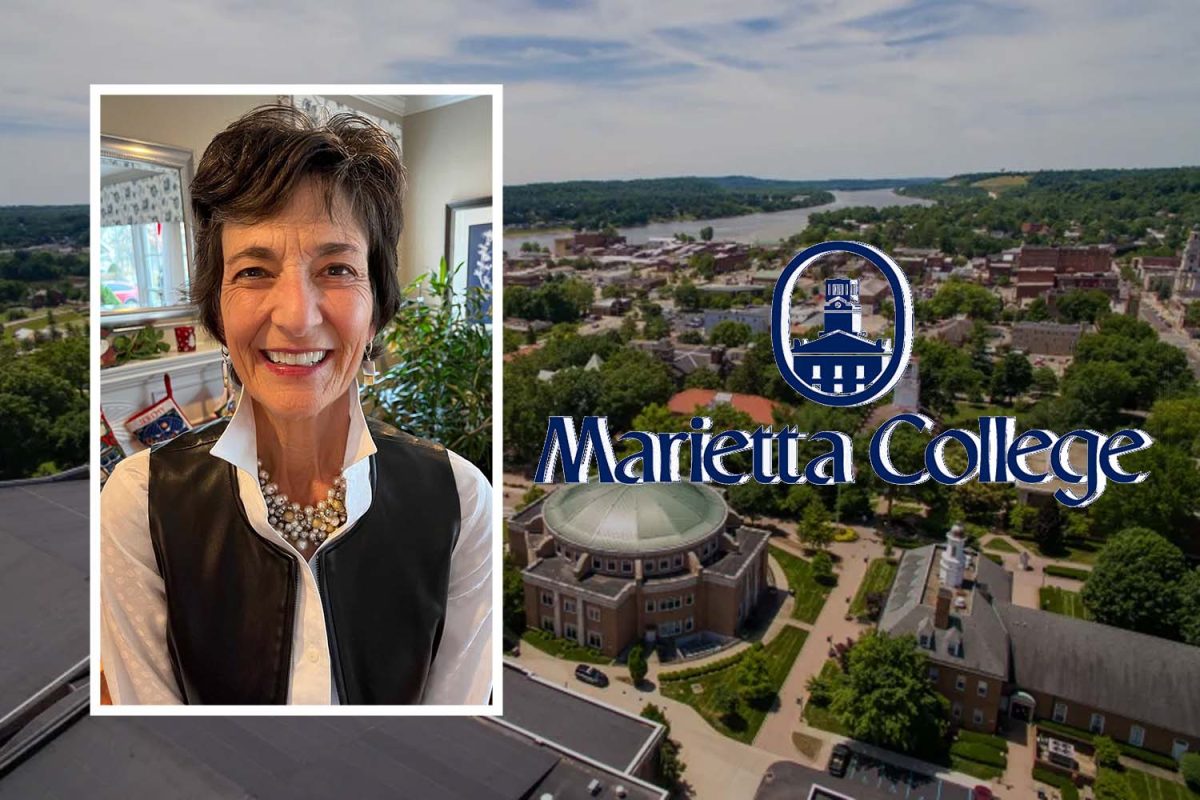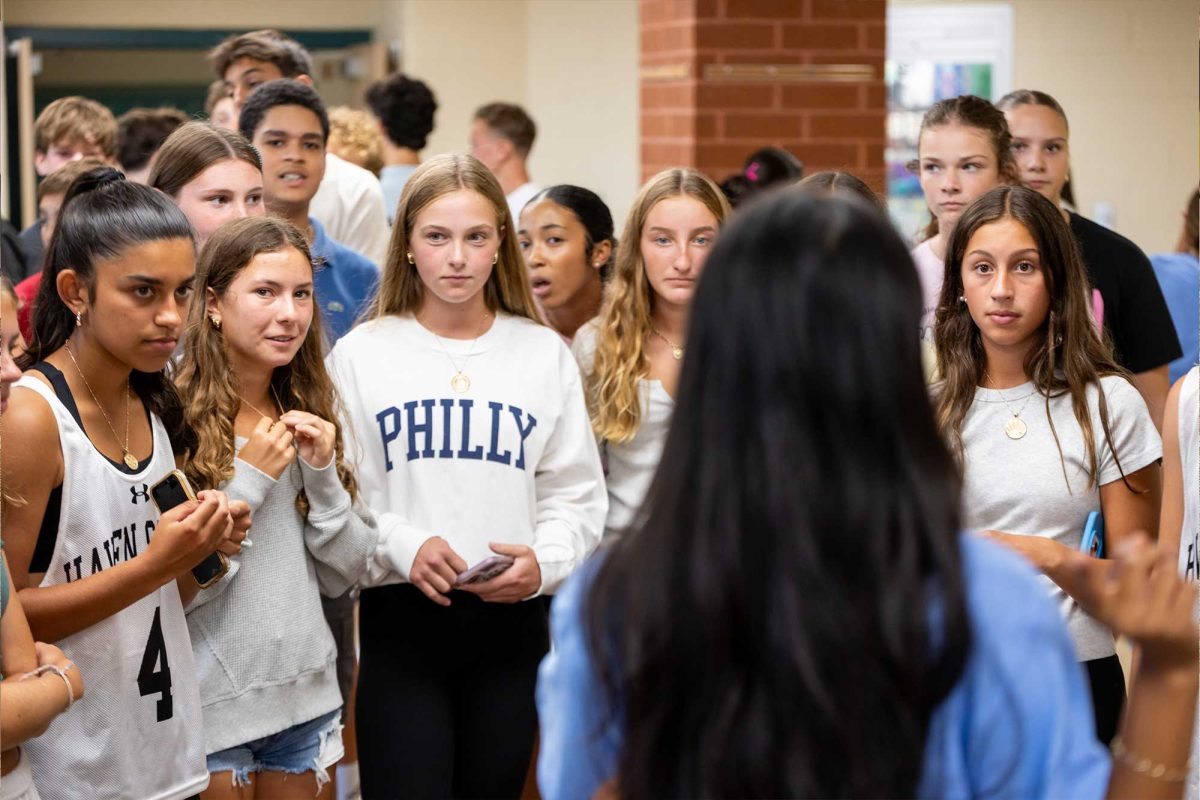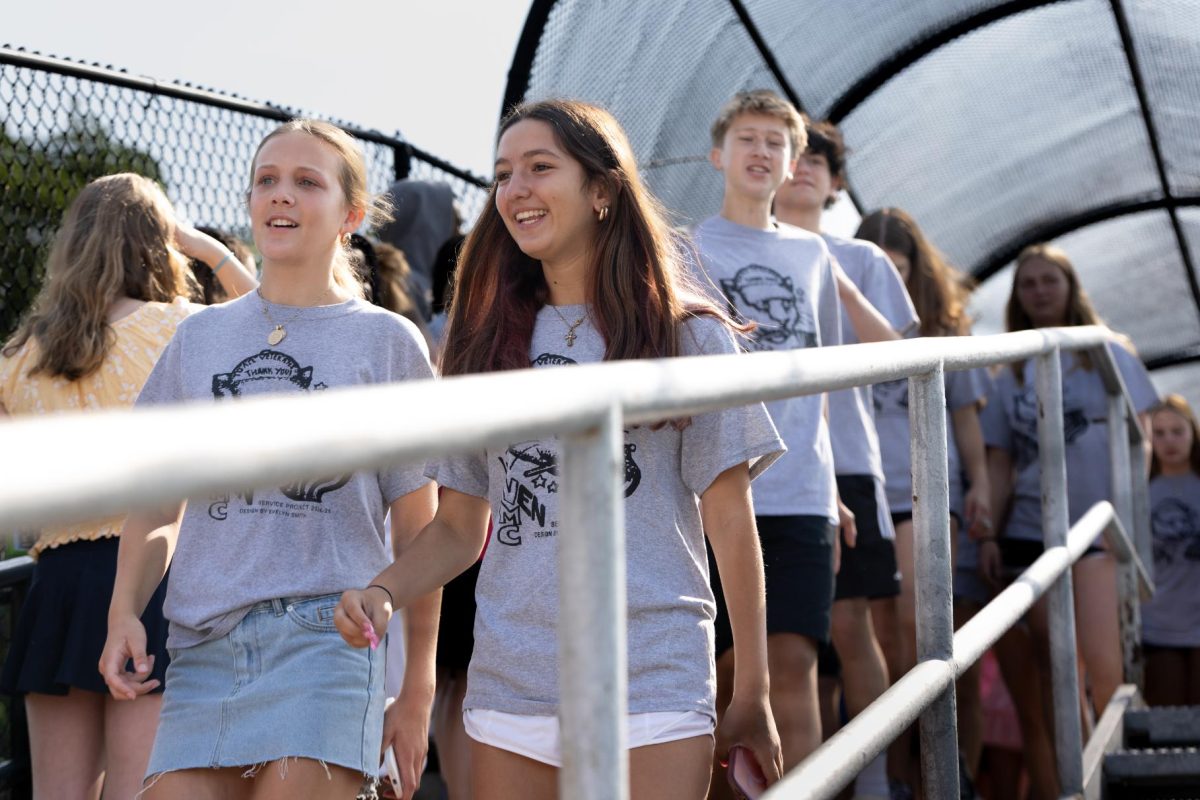The world is made up of thousands of cultures and religions.
Mr. Daniel Peterson’s World Religions class, a history-based elective, introduces students to five major religions: Hinduism, Judaism, Christianity, Buddhism, and Islam.
Students engage in projects, readings, watch movies, listen to guest speakers, and take field trips to learn about just some of the history and continuity of these religions.
“Even though it’s less rigorous than a calc class or an AP English class, it still is interesting,” senior Joe Lynch, who is currently taking the course, said. “Every day when you’ve got something different, like a movie, or a guest, or a field trip coming up, there’s always something to look forward to.”
The class emphasizes exploration of these topics and developing a curiosity in the religions, where there is always something new to learn.
“In the first week of the class, I always use the same analogy,” Peterson said. “I say, ‘Imagine you’re standing on the beach, which is something most people have done, and you’re looking at the ocean, and you take a glass, and you dip your glass into the ocean, and you come up with a glass of water. That water is the same as the amount of knowledge of getting this glass compared to what’s out there.’”
The class also emphasizes the value of religion and culture within society.
“It [the class] felt like an interactive experience, where we got to see what was going on in the world and appreciate the differences that are often unnoticed in this world,” senior Bailey Hansen, who took the class last semester, said.
Field trips occur once per unit. Students visit several religious sites to learn more closely about the culture.
“It’s something about being out of the building and just being able to do something fun and do something different makes it memorable and special and allows the kids to connect in a different way,” Peterson said.
Lynch notes that the trips add an educational and hands-on perspective to the religions learned in class.
“As much as you can read or watch videos, it’s entirely different to actually be in an environment where you are around people who are actively practicing their religion, or you’re around the statues, the foods,” Lynch said. “It just kind of makes everything feel a lot more real.”
Unlike other classes, World Religions is also different in that there are no major tests or essays. Peterson teaches this way because of the course material.
“The reason I do it that way is because the course is different,” he said. “I think learning about religion is different than learning about geometry. Geometry or something like that is really external, and religion is more like English class, where it’s more internal and subjective, introspective.”
Instead, Peterson assesses students’ learning through assigned homework and reflective writing.
“Just the style of assessments is different,” Peterson said. “Normally, assessments are supposed to instill fear a little bit– like, ‘Oh, my gosh, I have this test,’ or ‘Oh, my gosh, I have this essay.’ The goal is to take the fear away so that you can just enjoy it. You’re still doing work, but it’s a different kind of work.”
One such project is a final project where students research and present another religion of their choice to their peers.
“Everyone got to choose their own religion study, in groups, and then we would present it, and we had these interactive activities that were always super funny and enjoyable to watch because they would do projects to help us to remember it,” Hansen said. “We had three people sitting in the center fighting to be the bachelorette for our one bachelor, and it was just so funny to watch everyone enjoy and interact.”
Several of the students recommend the class, as it not only teaches something meaningful but also engages you in having fun with it.
“It’s honestly a class that should be required considering how big religion is in this world, but it’s a fun way to learn about it in a non-biased way where you can honestly be whoever and whatever, and still get to learn about all these things and feel like your opinion [about religion] doesn’t have to change,” Hansen said.




